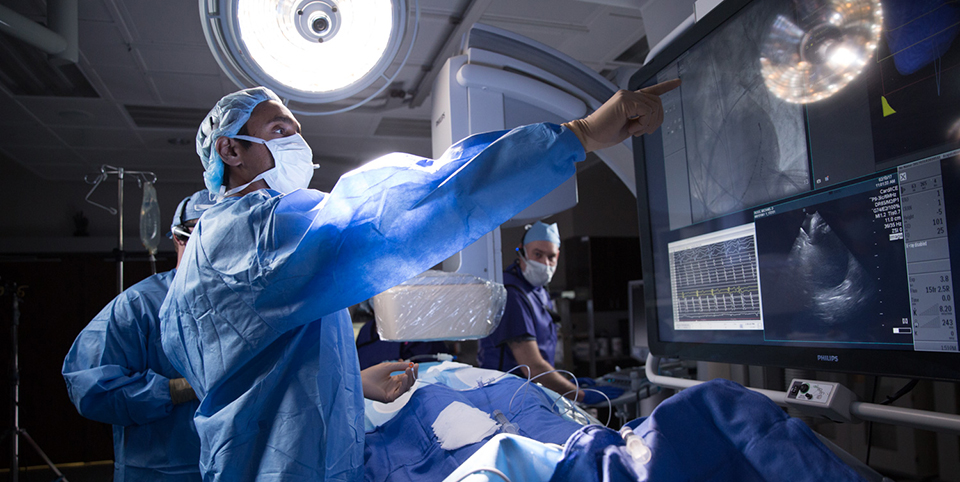An arrhythmia is when the heart beats too slowly, too fast or in an irregular way.
Olathe Health is a regional leader in the care of arrhythmias (heart rhythm disorders). From new advancements in diagnosis, like the EP Navigator heart-mapping technology, to the latest ablation treatments and devices, we have the expertise to care for patients with many types of arrhythmias.
Learn more about our new non-invasive procedure called Left Atrial Appendage (LAA) Closure below under Treating Atrial Fibrillation.




